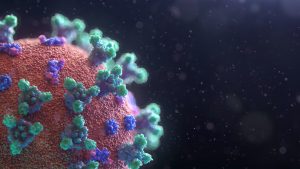Researchers from Indiana University School of Medicine’s Department of Microbiology and Immunology investigated innovative approaches to treating seasonal asthma.
The study’s findings were published in the journal ‘Science Immunology.’
Also Read | West Virginia bans abortion in case of suspected disability
“Asthma has no cure and current treatments primarily focus on resolving the symptoms,” said Ben Ulrich, PhD, lead author of the study. “While spending time in the high-risk asthma clinic at Riley Hospital for Children, I observed many patients had a more intermittent disease course. We went into the lab and developed models to more accurately define allergic memory and recall response in the lung.”
When a person with seasonal or intermittent asthma inhales allergens, they may experience symptoms such as wheezing, coughing, and, in extreme situations, asthmatic exacerbation or hospitalisation. These symptoms are caused by inflammation, restriction of the airways, and mucus production.
Also Read | India reports 1,581 new COVID 19 cases, 33 deaths in last 24 hours
When exposed to seasonal allergens, such as pollens, fungi, or other allergens that are only present at specific times of the year, antigen-presenting cells activate CD4 positive T-cells to produce cytokines, so initiating inflammatory cascades. The researchers studied one cytokine, interleukin 9 (IL-9), to examine how it affects allergic memory responses.
Also Read | US may see COVID surge in coming weeks, Anthony Fauci warns
The inhibition of IL-9 resulted in a reduction in the expression of multiple genes involved in mucus formation in epithelial cells. It also resulted in a reduction in CD4 T-cells and B-cells, as well as an alteration in the expression of activation markers on microphages.
Also Read | Hong Kong all set to lift ban on flights from India, 8 other countries: Report
“Asthma exists in multiple forms and seasonal or intermittent asthma can be very different from other forms because of chronic exposure to allergens,” said Mark Kaplan, PhD, chair of the IU School of Medicine Department of Microbiology and Immunology and senior author of the study. “This study demonstrates targeting IL-9 in the lungs during seasonal allergies could help with lung inflammation. By focusing on a population of memory cells that mediate the allergic recall responses of the lungs, we could develop new targets for treatments.”





